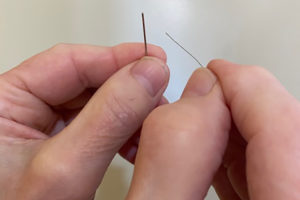Does this sound familiar? It’s much tougher to get that evening walk in after work when it is dark by 6 p.m. School and family activities are in full swing and there’s not a minute to spare for stress relief, let alone meal planning. Your workplace office starts piling up with not so healthy snacks. You get a call from the in-laws telling you they are going to park their RV in front of your house for the month of December. Wait…wasn’t that a movie from the 90s?
What You Already Know
You probably expect this article to focus on food and exercise. You are right, as both are necessary to control blood sugars, but just for a moment. Food choices are extremely important. I rely on our diabetes educators to teach patients the finer points of diet and carbohydrate counting, whereas I like to keep things as simple as possible.
Advice I Often Give to Patients Includes:
- “Try to avoid the unhealthy carbs.”
- “Drink more water.”
- “Try eating your veggies and protein on your plate before you eat your mashed potatoes.”
- “Move more.”
- “Be less efficient.” As in park farther from the entrance, take the stairs instead of the elevator.
- “Try walking for 5-10 minutes after each major meal to lower your post meal blood sugars.”
These can all be helpful, but frustratingly managing your blood sugars is more complex than this.
What May Surprise You
When I sit and talk with patients our conversations often drift towards personal stressors and how these affect blood sugars. The holidays can be overwhelming for everyone. For those living with diabetes, it’s extra challenging. Checking blood sugars and taking medications on time is often easier said than done. I’ve heard many patients describe having diabetes as another full-time job they don’t get paid for.
So How Does “Stress” Raise Blood Sugars?
What exactly does that mean? I often use a grizzly bear analogy, however, you can fill in the blank with your dreaded reptile/insect/animal. A person encounters a bear in the woods and a “fight or flight” mechanism is triggered. A series of neurological and chemical changes occur in our bodies. Our body wants to make sure that our muscles, brain, and heart all have the fuel (glucose) they need to run away.
- Cortisol and adrenaline are released from adrenal glands into the bloodstream – raising blood sugars
- Glucagon is released from the pancreas, freeing stored glucose from the liver – also raising blood sugars
Fortunately, most of us won’t run into bears this holiday season, but on a smaller scale, daily stressors (whether emotional or physical) can cause dramatic swings in blood sugar for those living with diabetes. This is very apparent to those who use continuous glucose monitors (CGM). One can often find dramatic differences in glucose readings on workdays versus non-workdays and days with family conflict versus those without. It’s very eye-opening.
Tips to Get Through this Stressful Time of Year
So what are a few tips to get through this stressful time of year?
- Have a game plan – anticipate stressors, and pick your battles
- Be prepared – don’t leave home without medications, spare testing supplies, etc.
- Don’t beat yourself up – if you have some bad numbers it’s not a math test result, just a number. Keep testing!
- You are not alone – you shouldn’t feel like you are on an island. Diabetes affects the whole family. Enlist their help in your preparation. Educate family members on your signs and symptoms of both low and high blood sugars
- Go easy on the alcohol – it can mask symptoms of lows and highs, not to mention leading to poor food choices. Alcohol is known to worsen other health conditions common to diabetes such as high blood pressure, high triglycerides, depression, anxiety, and poor sleep quality.
Take It One Day at a Time
Knowing what can affect your blood sugar levels and focusing on this – even with little steps and small changes – can make a big difference in how you feel. Try to work in ways to get exercise, make good food choices and keep your stress at bay. Serenity now! Wait, wasn’t that another 90s show.
Happy Holidays!

Aaron Ward, MD, Internal Medicine
Dr. Aaron Ward is an internal medicine doctor. He has a special interest in diabetes prevention and management. For those living with diabetes, he is dedicated to working with patients and using emerging diabetes technologies to improve health.
“I get so excited when my patients have breakthroughs with new technologies, or are able to prevent or cut back on medication use through lifestyle changes or new therapies.”








